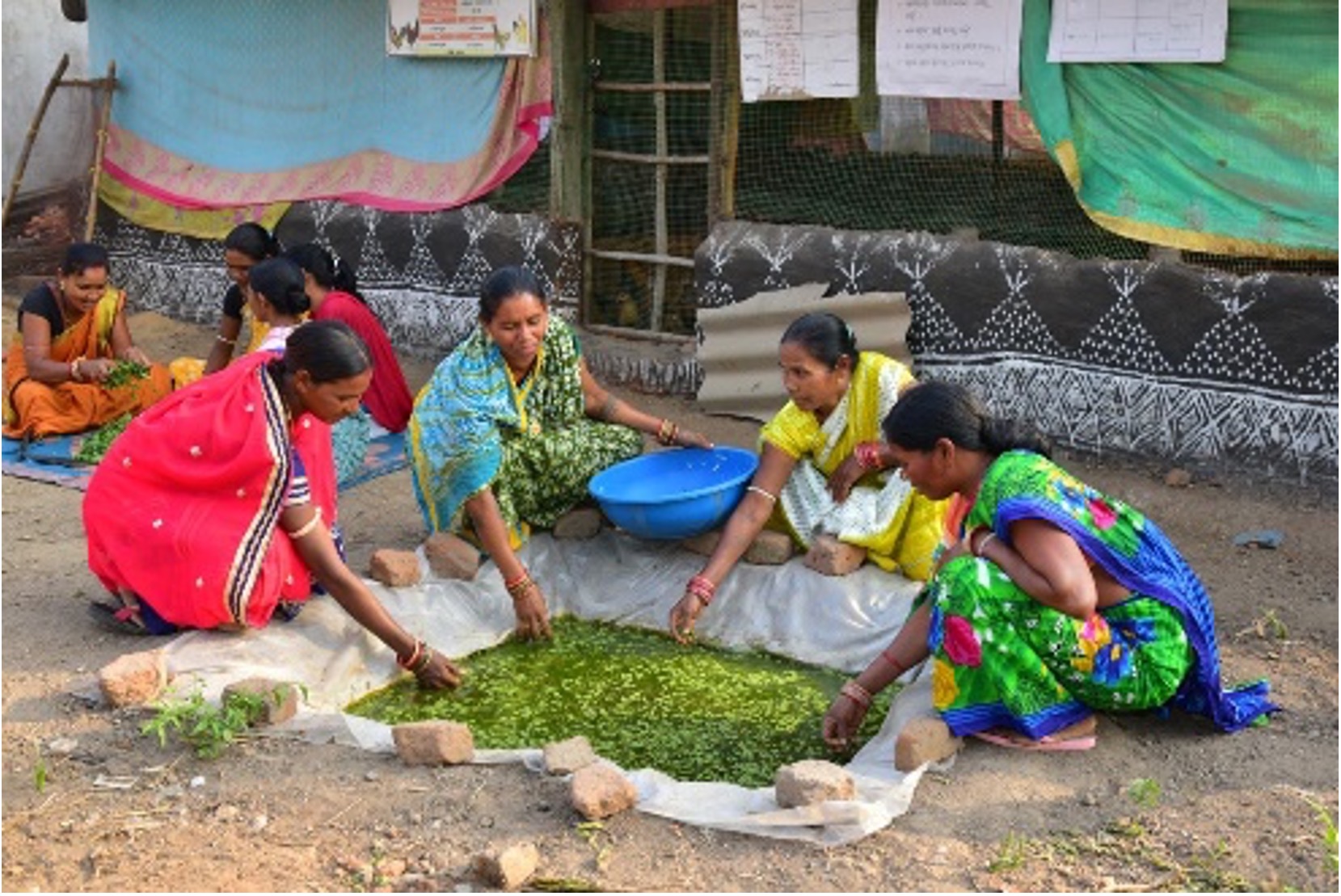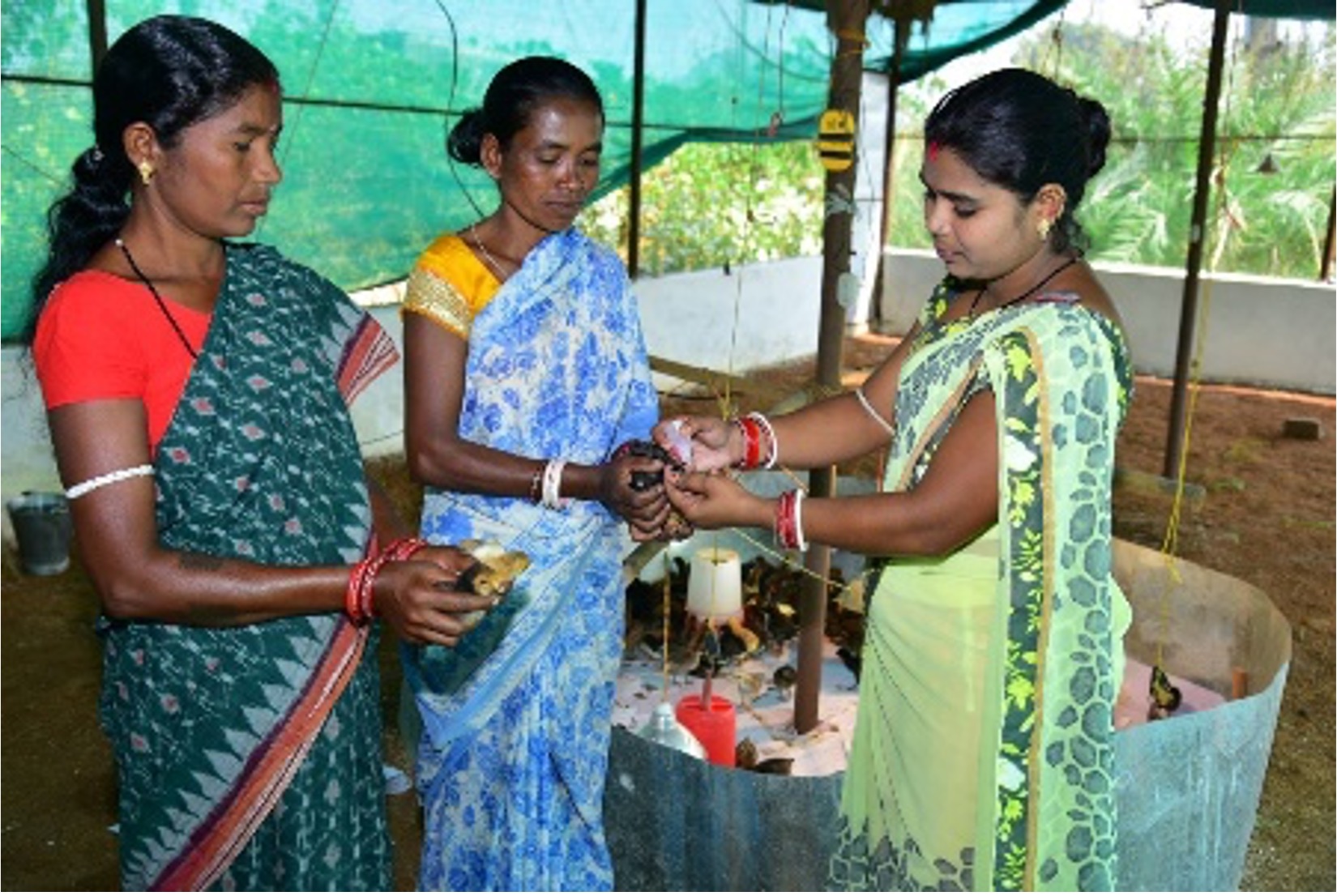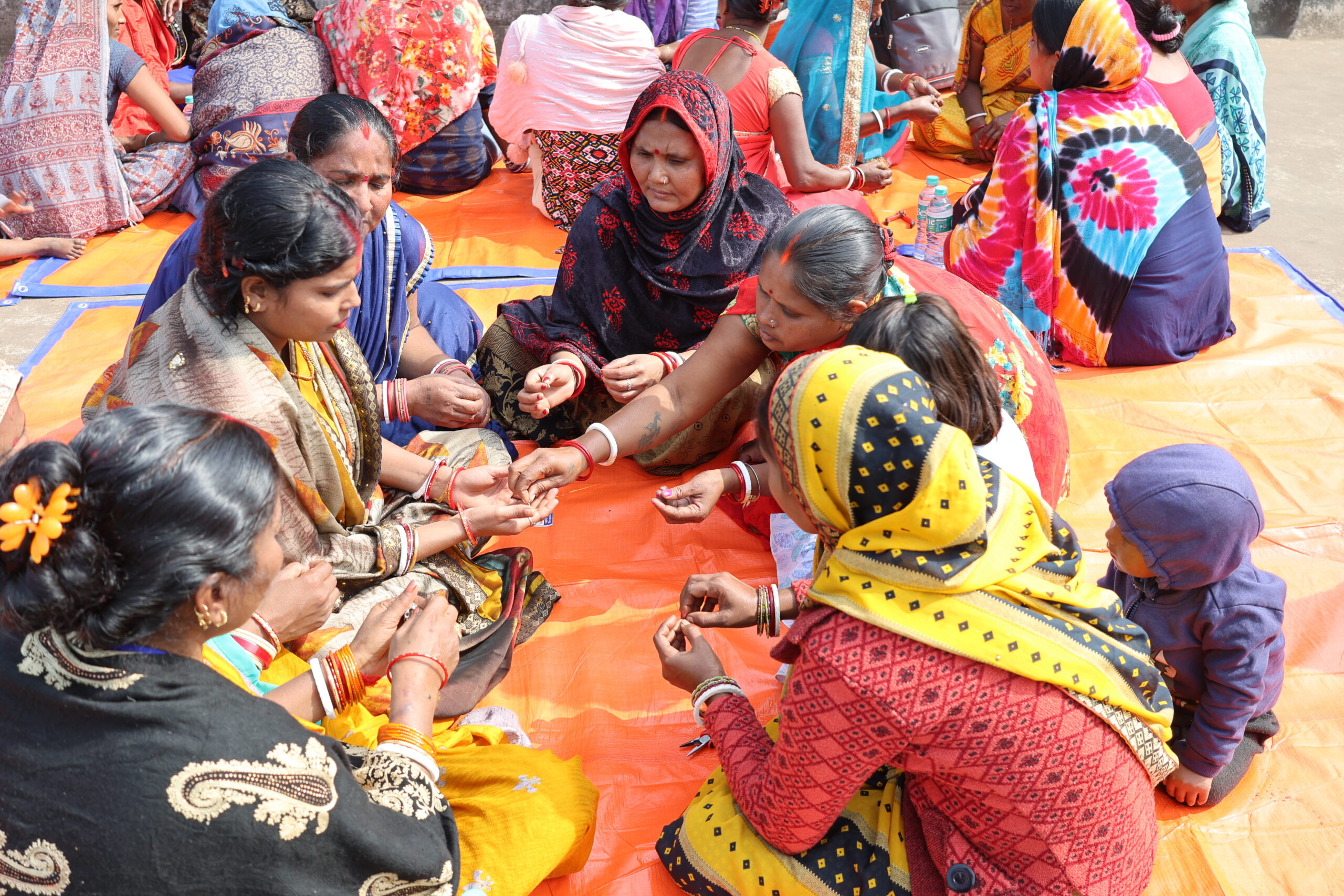Across our programs, Trickle Up participants are constantly innovating ways to improve their microenterprises through sustainable and climate-smart practices.
In the Ultra-Poor Market Access (UPMA) project, Trickle Up supports participants to develop climate-resilient practices, such as using local poultry breeds that are more resistant to increasing heat waves and rising temperatures, using organic fertilizers to combat soil degradation, and encouraging groups to coordinate for composting and other organic fertilizer development as a reinvestment in their group microenterprise.
For women living in extreme poverty, sustainable and climate-resilient practices are increasingly important to ensure the long-term success and viability of their livelihoods.


(Left) UPMA participants sort through Azolla for chicken feed, practicing integrated Azolla and poultry farming. (Right) UPMA participants learn to care for local poultry breeds and mitigate climate risks.
Comprehensive training initiatives for field teams, coaches, and participants in the UPMA project ensure that climate-resilient practices are an integrated part of the project. Technical experts provide annual support on permagardening, soil management, seed management, climate-responsive cropping design, water management, pest management, and more.
The training also builds upon long-held local practices that promote sustainability and climate resilience, such as preparing Beejamrita, a cow urine solution for seed treatment. These practical skills allow participants to implement climate-smart agricultural techniques, supporting environmental conservation alongside improved agricultural productivity.
In Trickle Up India Foundation‘s Women’s Initiative for Nurturing Growth and Sustainability (WINGS) project on urban poverty across five slums and 317 women, participants use eco-friendly materials that are regularly available to craft jewelry. By upcycling materials like jute, paper, mount board, tread, and cloth, these women are not only creating a new and high-value product but also creating new norms around the shelf life and usability of these materials and discouraging waste.

Women attend a training to craft jewelry out of recycled materials.
In West Bengal, single-use plastic bags pose a significant biohazard. WINGS participants instead focus on upcycling paper into bags, envelopes, and Thonga, closing the value chain for single-use plastics and discouraging further production.
Our participants are often the most immediately impacted by climate disasters due to their economic and social vulnerability, so integrating climate resilience throughout our programs is key to supporting their success.
As we face increased climate variability and India braces for more heat waves, floods, and climate crises, it is more important than ever to innovate around climate resilience while ensuring our participants’ financial resilience, economic empowerment, and social inclusion and agency. Our projects integrate climate resilience to equip our participants with the tools they need to face climate crises and shocks to their livelihoods.



